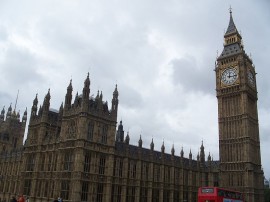
The recent revelations about MPs’ expense claims had led to a series of newspaper articles now questioning the whole function of having rules as such. Conservative columnists such as Iain Martin and rational liberals such as A C Grayling are finding routes to the same argument that individuals equipped to act ethically will behave better than individuals tasked with following rules.
A C Grayling writes that a “rules-based society is by its nature a rule-bending society” and that the rules thus will inevitably fail. The act of compliance will be accompanied by an act of rebellion, seeking to get round the rules rather than meekly submitting to them. The rules need to be followed in the spirit as well as in the letter.
Federalism is fundamentally a rule-based approach to relations between states – law should replace force as the means of settling their disputes – so naturally federalists should be concerned if there is a revival of the argument that rules are the wrong approach.
The significance of rules in relation to the power of the state is that they constrain that power. It is necessary for a citizen to obey the law, but it is also sufficient. The state does not have the right to compel actions in ways that are not laid down in statute. A citizen who pays the proper taxes should live in no fear of further expropriation. If there are no rules and merely ethics, when can somebody know that that they have given enough?
Furthermore, the political process is a collective means of deciding upon collective action. Citizens as a whole know that an extra financial contribution from any one of them would achieve little in terms of providing further resources for the state, but the guarantee that the same extra financial contribution will be provided by all of them will achieve a great deal. This is the advantage of taxation over charity: you know what you are going to get.
Let’s go back to MPs’ expenses claims. The present system of a few rules and the expectation of honourable behaviour has failed. The rules were too few to control what might and might not be permissible expenditure, and the expectation of honourable behaviour has not been met. To blame this failure on the presence of the rules, because they degraded the importance of the behaviour, is wrong. Better to blame the inadequate rules.
Similarly with the collapse in the banking sector. It is no good saying that the City was fine when everyone working in it was a gentleman. The truth is that it wasn’t fine – it was rife with insider trading and exploitation of the innocent investor. Trading practices have to be controlled. The incentives offered to traders have to be consistent with the long-term interests of the banks and of the wider financial system. This is the role of regulation.
This is not to deny the role of ethics, for there are places where the rules cannot go. The libertarian dream that every relationship can be reduced to a contract is mistaken. There is such a thing as society that needs more regulation and control than the law can provide. There is a place for following rules in the spirit as well as to the letter, whether we are thinking about MPs’ expenses or the treaties and institutions of the European Union.
Society is held together by more than just what is written down. It also depends on what must remain unspoken. If the Conservatives should benefit from the present crisis of public confidence in politicians and their behaviour and form the next government, they should remember this in their foreign policy as well as at home.
